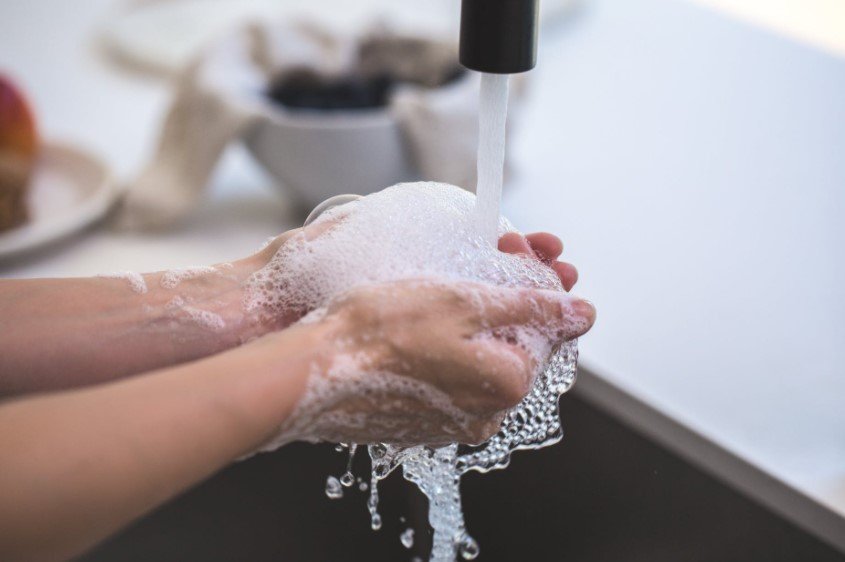It goes without saying that covid-19 has immensely affected the globe. Cleanliness and hygiene processes are now becoming critical factors in limiting the spread of coronavirus. People are left wondering what cleanliness measures to take, how to do their laundry, and ways of preserving their food while adhering to Covid-19 cleanliness regulations.
While Covid-19 research is ongoing, the globe is aware the virus spreads through sneezing, coughing, and direct contact with an infected person. Coronavirus can survive for several hours to days on surfaces, but disinfectants can eliminate it. Here is what Covid-19 has taught us about cleanliness.
What Hygienic Practices Should People Adhere To?
As covid-19 continues impacting the health sector and global welfare, people should adhere to several hygienic practices even as protocols ease to keep themselves healthy and safe.
Handwashing
The number one covid-19 rule is maintaining good hand hygiene. The hands are the main ways of spreading the virus. Proper hand hygiene will remain the most effective, crucial, and accessible tool to help stop the spread of coronavirus and mortality rates.
People are advised to wash their hands effectively and appropriately using water and soap for twenty seconds or longer. They should also wash their hands after coughing, being in a public place, blowing their nose, and sneezing. Some other occasions when one should wash their hand include:
- After handling a mask
- Before preparing food and eating
- After taking care of an ailing person
- Before touching the face
When the handwashing method is not applicable, people should opt to clean their hands with hand sanitizers with sixty percent alcohol content.
Handwashing is a trend that has been there before the covid-19 outbreak and will still be there when it is gone. However, people are becoming more concerned about cleaning their hands now than before as it is among the covid-19 protocol necessities.
New Healthcare Reform Burning Platform
Coronavirus has exposed some healthcare system gaps in the world’s most advanced countries. There is a burning healthcare platform for reforms due to the pandemic in the United Kingdom, United States, France, and other developing countries. The pandemic is forcing the healthcare sector to transform and offer more equitable care. This will be useful and will create opportunities for individuals involved in establishing the new system.
Other than reforming the healthcare industry, hospitals will have to concentrate on offering individual healthcare. Emotional connectivity will need to increase as social isolation, remote working, and social distancing are becoming common. Healthcare facilities and companies will have to focus more on staff well-being and mental health to eliminate in-person human contact limitations.
Personal Hygiene
Personal cleanliness is the other trend most people focus on during this pandemic period and will stick around after the pandemic. It is helpful as it can protect one’s health and that of others. Some of the personal hygiene practices include:
- Avoid Touching the Face- one should not touch their mouth, eyes, and nose
- Avoid sneezing and coughing into the hands-when sneezing, ensure you cover your nose and mouth with the elbow and use a tissue to cover the nose and mouth when coughing
- Observing social distance- one should maintain a one-meter distance from the other person when sneezing or coughing
- Avoid exposing yourself to immunocompromised people
Sanitization
Cleanliness is essential in everyone’s daily activities. In this coronavirus era, sanitization is widely discussed. Basic facilities and the hospitality sector will be under pressure to provide a more advanced cleanliness experience. Additionally, people will need to disinfect objects and surfaces to prevent the spread of coronavirus.
Sanitization and disinfection are becoming a norm as Covid-19 eases its claws. People are advised to frequently disinfect high traffic areas and touching surfaces that are easy to transmit communicable ailments like common cold and flu. Frequent cleaning is essential as it ensures the surfaces stay clean and sanitized. Regularly washing and cleaning clothes is also important, especially for immunocompromised people, so make sure that items like clothes, wigs, chemo beanies or hats, and other items are cleaned regularly.
Cleaning eliminates dirt, dust, and debris from the surface. It is also essential for general hygiene and maximizing sanitizers and disinfectants’ efficiency. Cleaning products are not effective for killing germs. Disinfect the surfaces to ensure they are virus-free.
Sanitization is vital in this pandemic period as it helps people stay in a virus-free environment through disinfecting surfaces, tables, chairs, and their house spaces. The cleanliness trend is here to stay even after coronavirus is gone. It is an effective way of eliminating the spread of Covid-19 as most sanitizers have a 60% alcohol content that helps kill germs and other pathogens.
Covid-19 has taught us a lot about cleanliness. It is the only effective way to prevent the spread of the virus. Once the virus lands on the surface, it takes a couple of hours to die. One should eliminate their spread by ensuring the surfaces and traffic places are cleaned and disinfected. Even though some of these cleanliness trends are effective during this pandemic period. They are likely to be efficient even after the pandemic.

